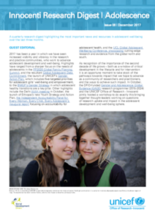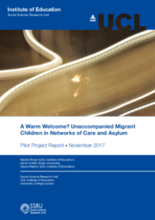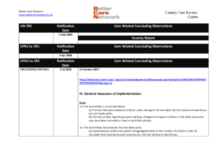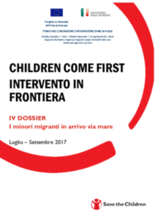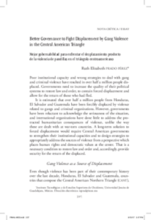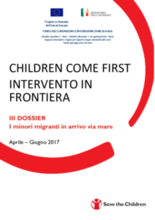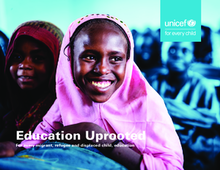Displaying 291 - 300 of 516
This research digest is the 8th in the series on adolescence. This edition focuses on protection from violence, health and development & learning.
This pilot project sought to investigate unaccompanied children’s experiences of care, and caring for others, as they navigate the labyrinthine asylum-welfare nexus in the UK.
This country care review includes the care-related Concluding Observations adopted by the Committee on the Rights of the Child as part of its examination of Cyprus’s periodic report to the Convention on the Rights of the Child.
As part of the "Children Come First: Intervention at the border" project, Save the Children Italy elaborates and disseminates, on a quarterly basis, a dossier containing quantitative and qualitative information (profiles) relating to migrant minors entering Italy. This dossier contains information relating to the period July-September 2017.
This essay examines the extreme violence and organized crime in the Central American Northern Triangle (CANT) region that is causing many young people, families, and individuals to flee and become displaced, as well as the widespread forcible gang recruitment in the region.
As part of the "Children Come First: Intervention at the border" project, Save the Children Italy elaborates and disseminates, on a quarterly basis, a dossier containing quantitative and qualitative information (profiles) relating to migrant minors entering Italy. This dossier contains information relating to the period April-June 2017.
This joint report from UNICEF and the International Organization for Migration (IOM) explores in detail survey data from the Central and Eastern Mediterranean Sea routes to Europe, focusing on adolescents and youth on the move from Africa and Asia.
This report provides essential data and information on educational challenges faced by nearly 50 million uprooted children around the world.
This chapter explores how the failing system of traditional almajiri education, challenges associated with government efforts to integrate almajiri education into the formal school system, social exclusion and hostility contribute to increase the boys’ vulnerability to radicalisation and recruitment by Boko Haram.
Informed by a cultural psychological approach to development, the authors analysed interviews with 18 unaccompanied Afghan boys and their professional caregivers.

